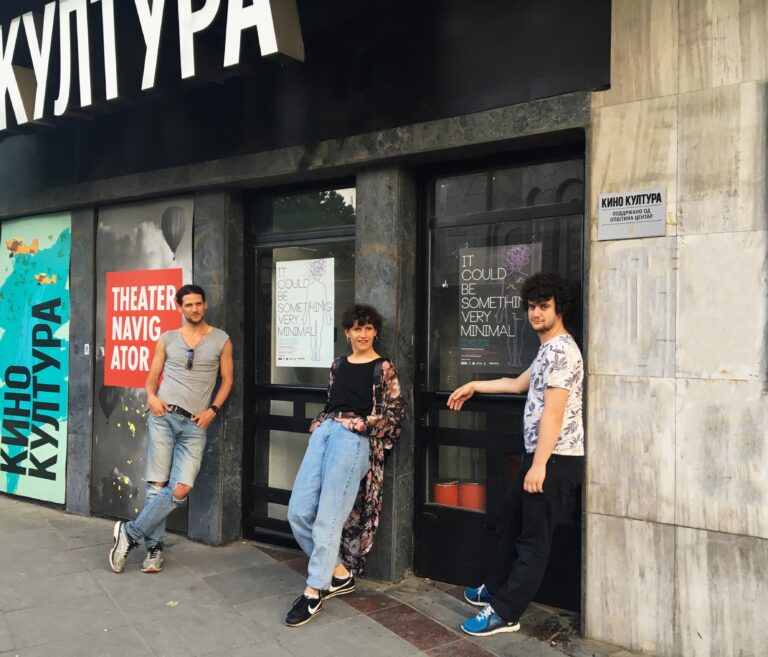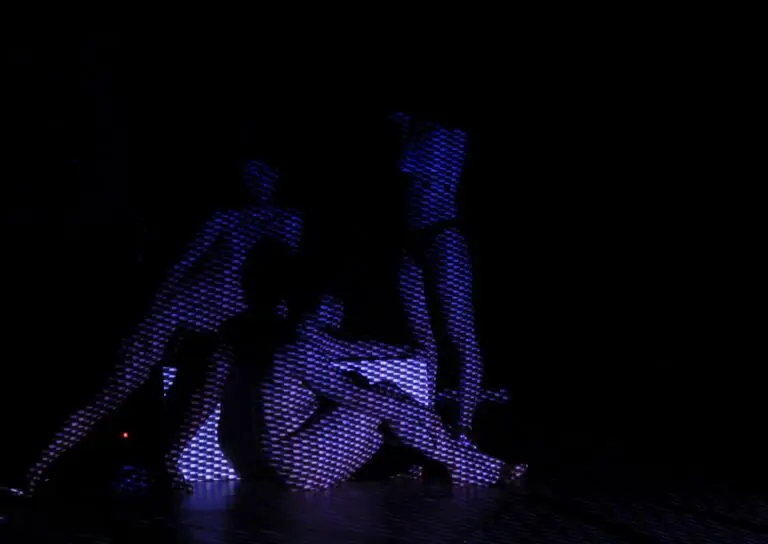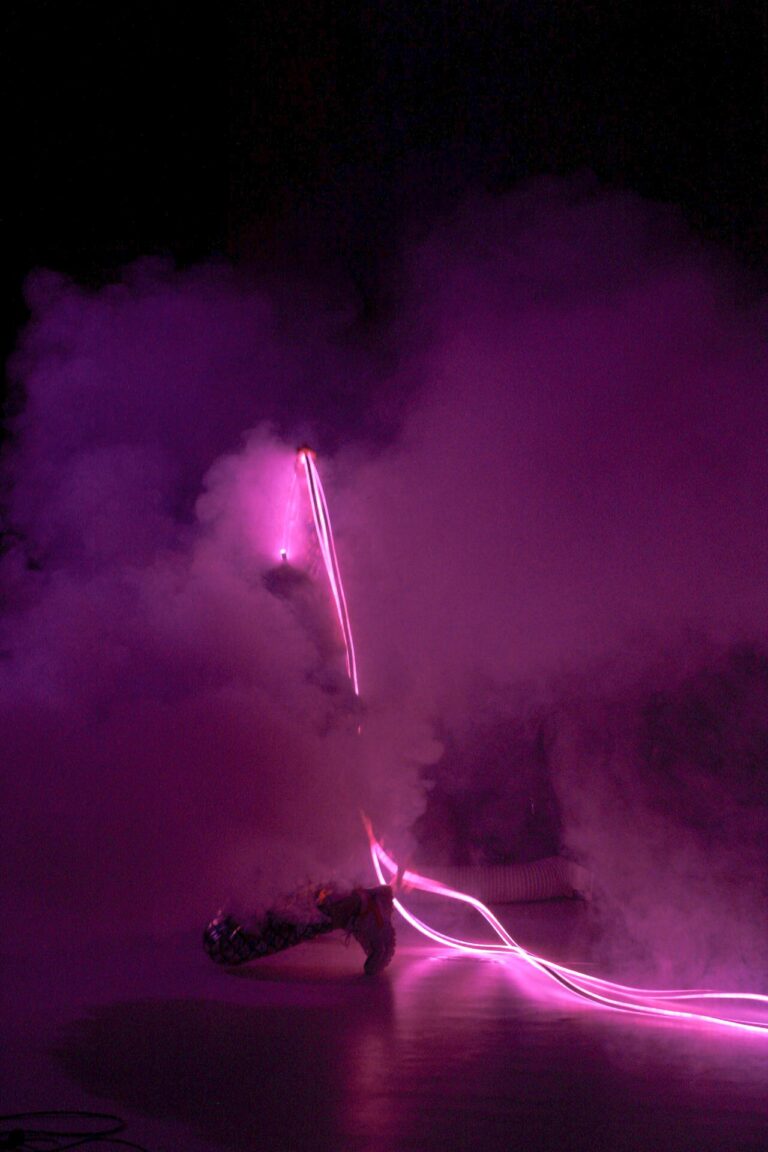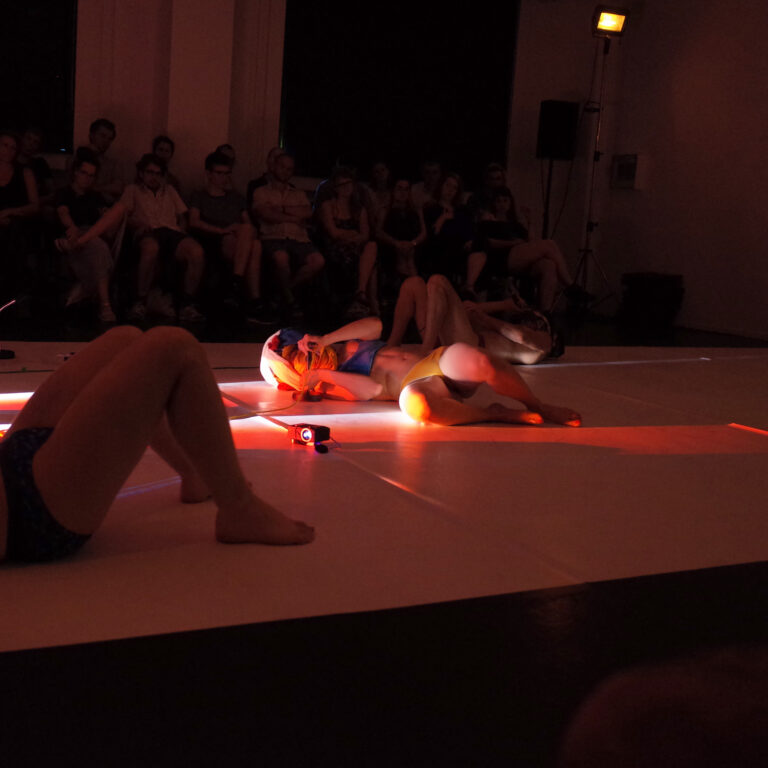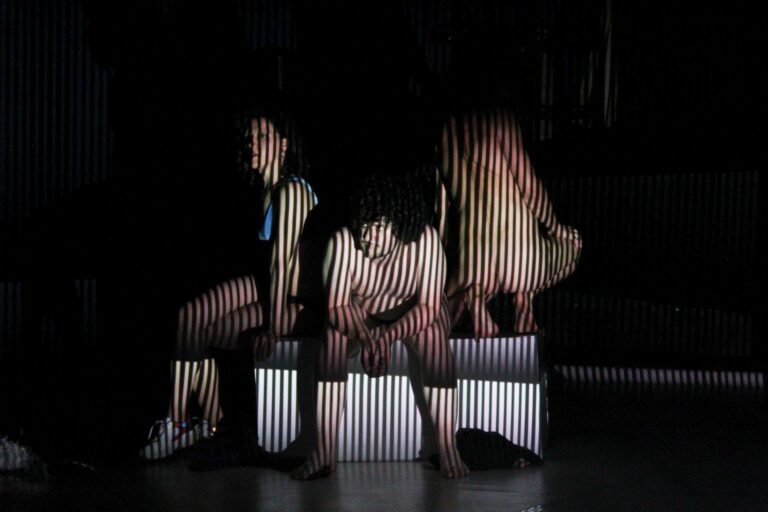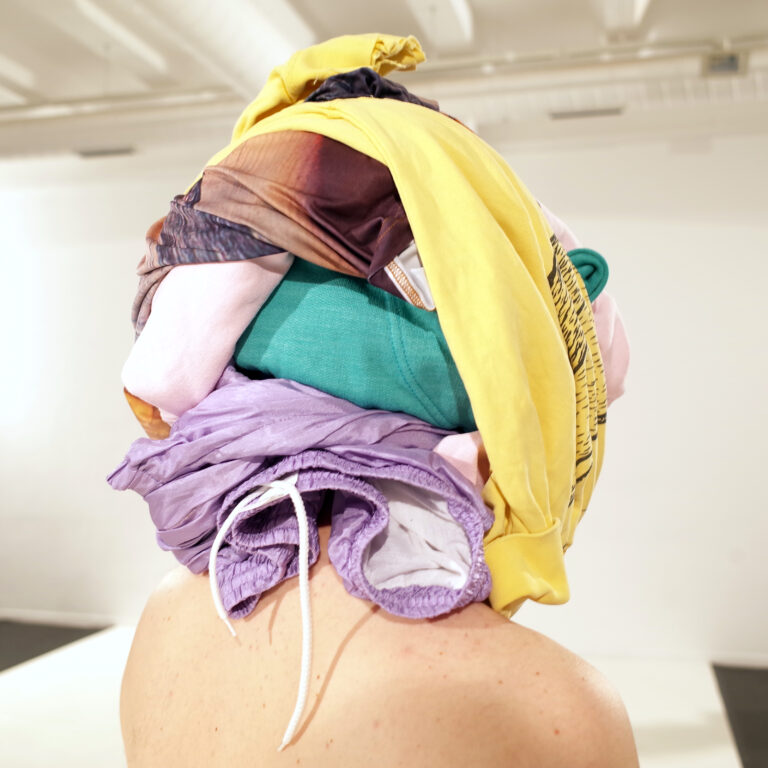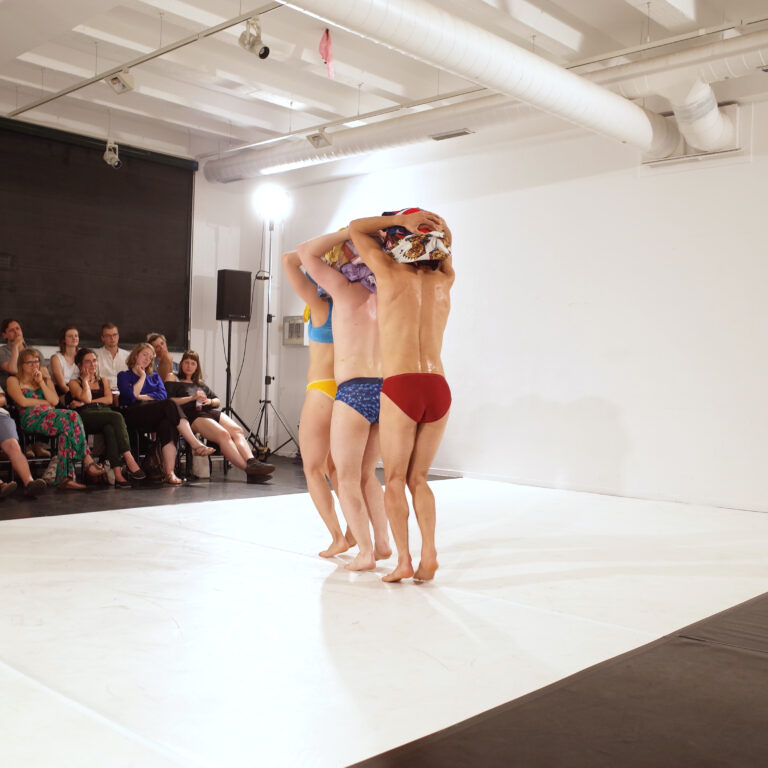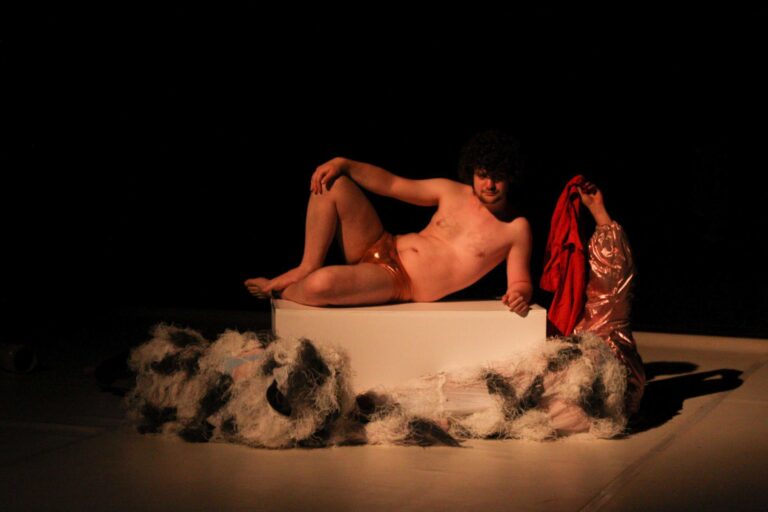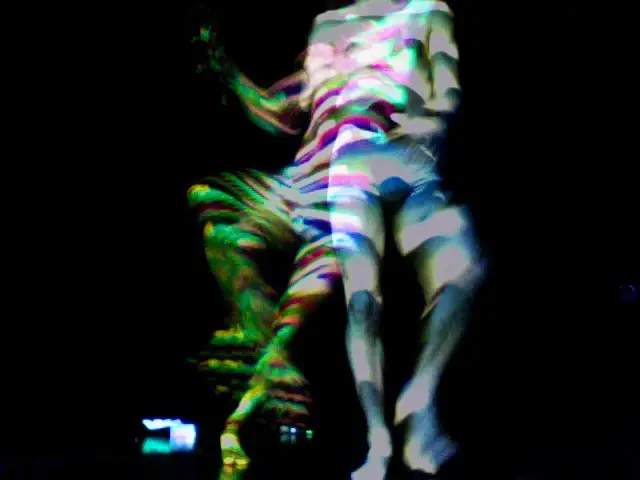IT COULD BE SOMETHING VERY MINIMAL
It Could Be Something Very Minimal is a long-term performative research project by Viktorija Ilioska, Patrick Faurot, and Max Smirzitz. Despite the title, the work is rarely minimal, embracing expansive themes of process, emergence, and the interconnectedness of visible and invisible creative forces. Since its inception in 2018, the project has unfolded through multiple iterations, each a distinct manifestation of their evolving methodology, which they call the “Fungal Methodology.”
This approach challenges traditional ideas of artistic production by likening the creative process to the growth of fungi. The visible part of a fungus, the mushroom, may appear as a fleeting, independent entity, but it is inextricably linked to the larger, hidden network of mycelium beneath the surface. Similarly, each performance or rehearsal is not seen as a goal or endpoint but rather a moment within a larger, ongoing network of exploration. The work is not teleological—there is no final destination or “finished” product. Instead, each iteration of It Could Be Something Very Minimal stands in relation to the others, offering glimpses into an ever-present, expanding elsewhere.
The project operates at the intersection of choreography, performance, and theory, drawing on concepts such as affect theory, assemblage, and vital materialism. Central to the methodology is the notion of emergence—the performances emerge from the process rather than being pre-determined by it. By resisting fixed outcomes, the collaborators explore the potentialities of bodies, spaces, and objects, investigating how they come together, interact, and evolve in the performance space. This practice is rooted in the notion of technological convergence, a concept borrowed from biology and adapted to reflect the merging of different functions in a single creative process.
Each phase of It Could Be Something Very Minimal is a study of how bodies relate to space, time, and each other. The collaborators engage in extended studio sessions, often involving improvised or “jam” practices where the boundaries between rehearsal and performance blur. This fluidity allows for the spontaneous emergence of ideas, actions, and relationships between bodies and objects. The work questions the nature of collective creation, probing how individual and collective subjectivities can coexist and transform in the creative process.
In this project, the collaborators treat their bodies as sculptural elements that shape and are shaped by space and time. They experiment with how bodies can carve paths in time and space, and how these movements generate affect and meaning. The performers’ bodies are projected upon—literally and metaphorically—through images, patterns, and ideas that fill the performance space. These projections are not just visual but conceptual, as the performers navigate complex questions about authorship, collaboration, and the porous boundaries between individual and collective action.
Over the course of their collaboration, Viktorija, Patrick, and Max have presented three distinct performances that demonstrate the breadth of their approach. Each performance, though unique, is intricately connected to the others through their shared methodology. The “Fungal Methodology” encourages them to resist the pressures of constant production for production’s sake. Instead, they are interested in exploring what remains after the performance—how ephemerality and durability coexist in the work. The project aims to push the limits of what a performance can be, questioning its temporal, spatial, and ontological borders.
Ultimately, It Could Be Something Very Minimal invites audiences to reconsider the nature of performance, process, and collaboration. Through its fluid, emergent structure, the work challenges conventional understandings of time, presence, and artistic creation. It is a living, growing organism that continues to evolve, extending its roots into the unknown and offering new insights into the possibilities of collective artistic inquiry.
SHOWINGS:
29 JUN 2018
@Künstlerhaus Mousonturm, Frankfurt, Germany
14 JUN 2019
@F°LAB Festival, Frankfurt, Germany
08 JUN 2019
@Skopje Pride Weekend, Kino Kultura, Skopje, North Macedonia
